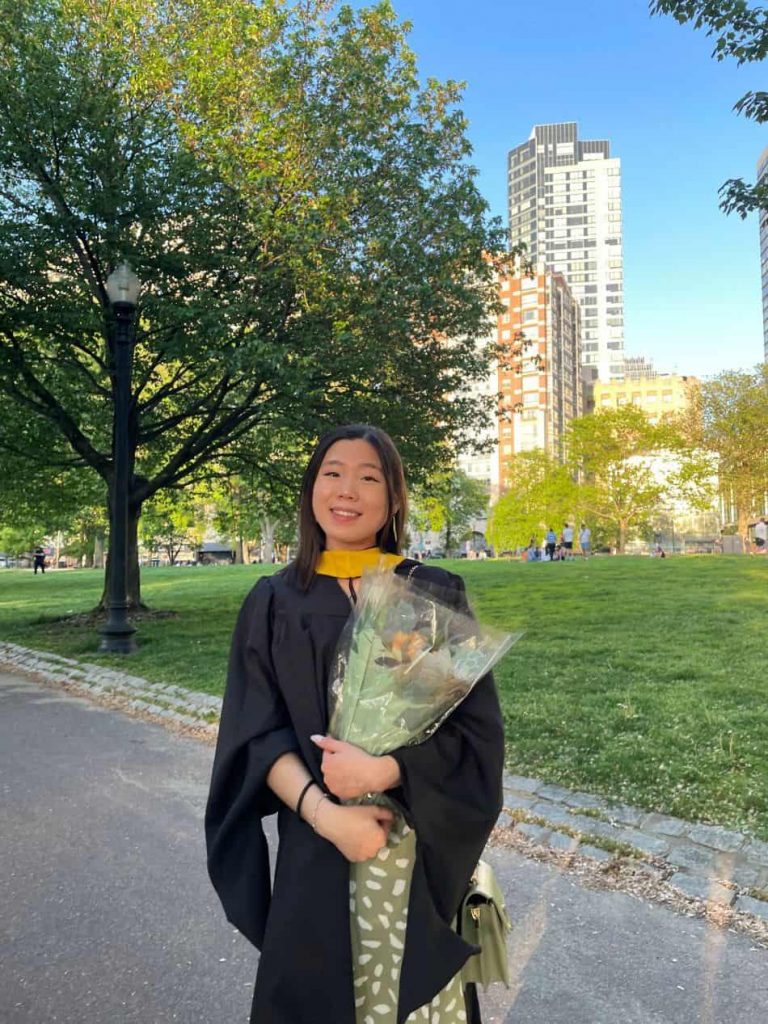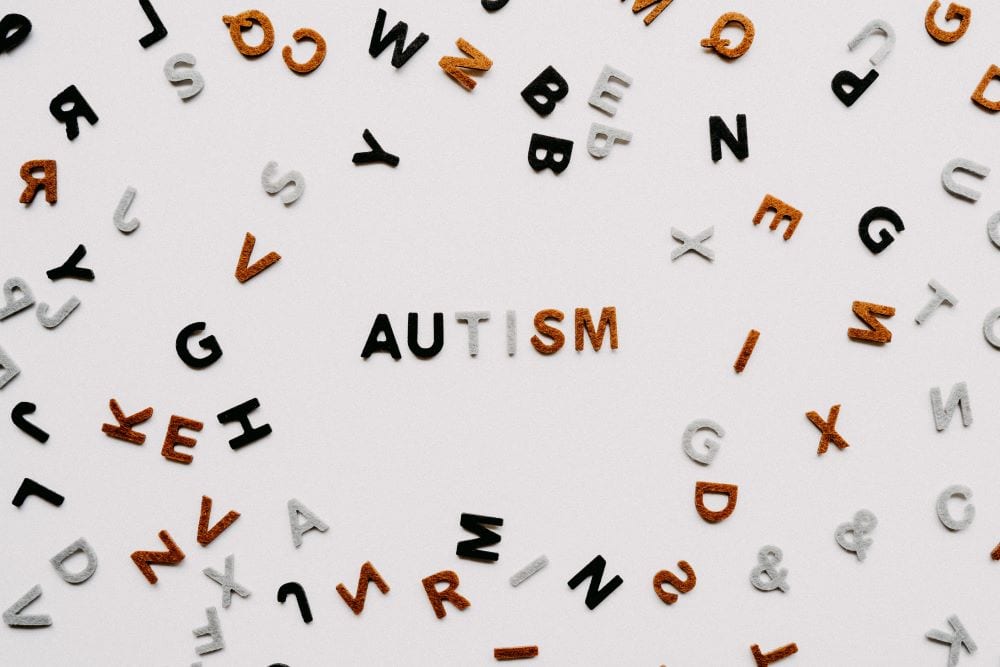
Alisha Lai, recent graduate from Emerson’s Communication Disorders program
If you’re considering going to graduate school for speech pathology, you might be researching schools with a thesis option. Today we’re hearing from Alisha Lai, a recent graduate from Emerson’s Communication Disorders (MS) program, about her graduate thesis. We’ll hear about the thesis process at Emerson, what Alisha studied in her thesis, and why completing a graduate thesis is beneficial.
What made you decide to complete a thesis?
“In college, I was part of a research lab, but didn’t get a ton of hands-on experience. I was considering doing an undergraduate honors thesis, but then COVID happened, and I never got to do that,” Alisha explains. After college, Alisha made sure to apply to graduate schools with a thesis track, still hoping to gain some hands-on research experience.
She adds that completing a graduate thesis is a great opportunity for students to expand their knowledge. “If you want to go into research, a thesis will definitely be beneficial, but even if you’re not going into research, it’s a good experience to have,” she explains. Alisha says that completing a graduate thesis helps students grow as clinicians and provides additional learning opportunities outside of the classroom.
Is a thesis required for Emerson’s program?
No! Emerson offers an alternative route of comprehensive exams at the end of graduate school. For these exams, students review all of the material they’ve learned since starting graduate school. To demonstrate their knowledge, they then complete a series of case-based assessment and treatment questions as a final requirement for the program. Students who complete a thesis do not take the comprehensive exams.
How did you decide your thesis topic?
“My thesis explored the experience and journeys of Chinese immigrant caregivers who have a child with an autism spectrum disorder diagnosis. I heavily identify with the Chinese American and Asian American community, so that really fueled my interest in this research,” Alisha explains.
Once Alisha knew she wanted to complete a graduate thesis, she had to find a thesis advisor who could mentor her through the process. Through talking with the department’s Thesis Chair, Alisha connected with Dr. Maryam Salehomoum, a faculty member in the Communication Disorders department. Dr. Salehomoum agreed to be Alisha’s thesis advisor, meeting periodically to discuss her thesis progress.

Photo by Annie Spratt on Unsplash
After finding a thesis advisor and obtaining Institutional Review Board approval for her thesis, Alisha began her research. To answer her thesis question, she conducted interviews with Chinese immigrant caregivers of children on the autism spectrum. Through the interviews, Alisha sought to learn about how culture impacts families’ perception of autism. She asked a series of questions about parents’ experience with getting an assessment for their child, receiving a diagnosis, finding services, and interacting with speech-language pathologists.
What were the results of your thesis?
“I got a lot of qualitative data from my interviews, which I then analyzed. What I found was that the families I interviewed had a lot of barriers but also a lot of great supports.”
Alisha explains that many of the families she interviewed experienced a language barrier. For families who only or primarily spoke Chinese, working with an English speaking speech-language pathologist made it more difficult for families to access important information about their child’s assessment, diagnosis, and intervention options.
On the flip side, some families shared very positive experiences where a speech pathologist was multilingual and communicated with them in Chinese. This allowed families to understand and ask questions about information the speech pathologist shared with them. Alisha also found that speech pathologists who considered the family’s cultural values and background contributed to a more positive experience for the family.

Photo by Andrew Neel on Unsplash
What was the best moment and most challenging part of your thesis?
“The most rewarding part was interviewing the caregivers,” Alisha says. She feels grateful for getting to connect with so many family members and hear their experiences. “As a bilingual clinician, my drive is to be a cultural connection for families, but in these interviews, many of the parents became a cultural connection for me.”
Alisha adds that the most challenging part of completing her thesis was recruiting participants. “The participants I needed were pretty specific, so it was tough at first finding people for the study.” However, Alisha successfully found enough participants for her thesis and had a great experience interviewing the caregivers who enrolled in her study.
What advice would you give a student considering the thesis track?
“If you’re thinking about a thesis, don’t be afraid to ask questions. The faculty in the department are very approachable, so ask questions even if you’re not totally sure you want to do a thesis.”
Alisha also says that having a research topic that is motivating will help in moments of discouragement. “There were times when the work was tough, but I was passionate about my thesis topic, and that helped when I felt discouraged,” she adds.
What’s next for you?
“I’m moving to California for a Clinical Fellowship in a few months,” Alisha shares. After graduation, all communication disorders students must work for a year in a supervised clinical fellowship in order to become licensed speech-language pathologists. Alisha’s clinical fellowship is centered around adult brain injury survivors, which is a population she is passionate about. “Ideally, in the long term, I see myself working with the adult population, specifically brain injury survivors,” she adds.
Alisha is excited to be transitioning to the next step of her career as a future speech-language pathologist and is proud of the work she’s published in her graduate thesis. For more information about Emerson’s Communication Disorders MS program or the thesis process, schedule a call with the department’s admissions team. To get a feel for what it’s like to be in the program, be sure to check out our Communication Disorders blog page, where you can find student spotlights, career outlook, and more.


Leave a Reply